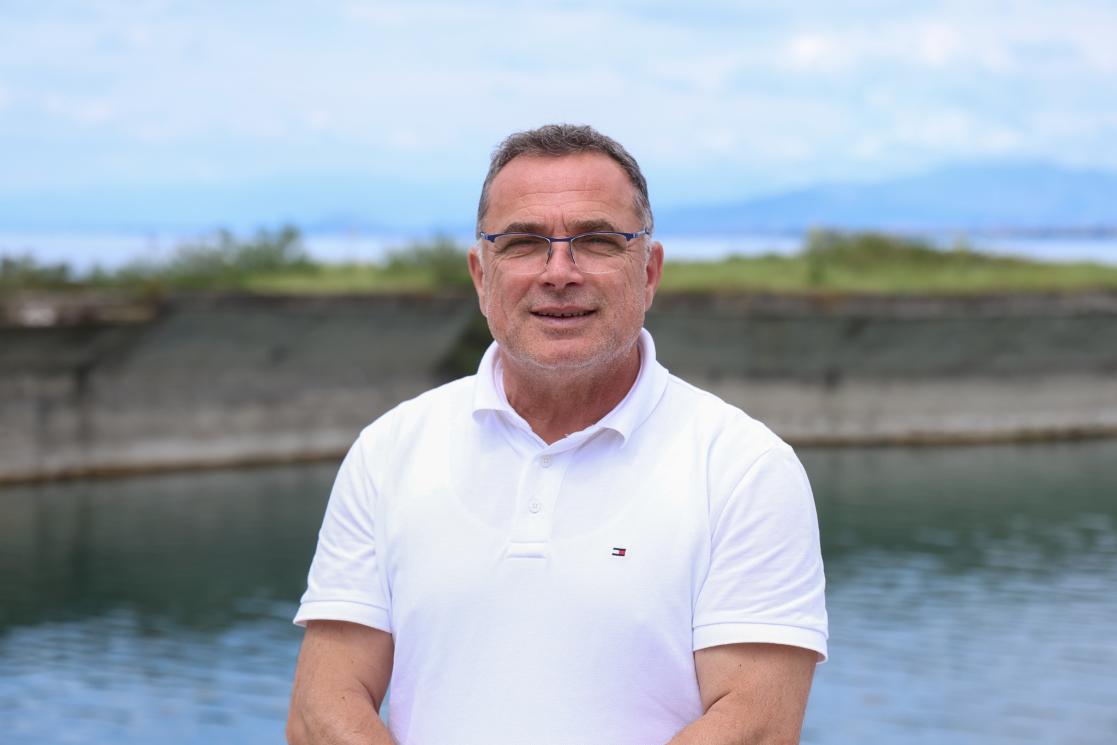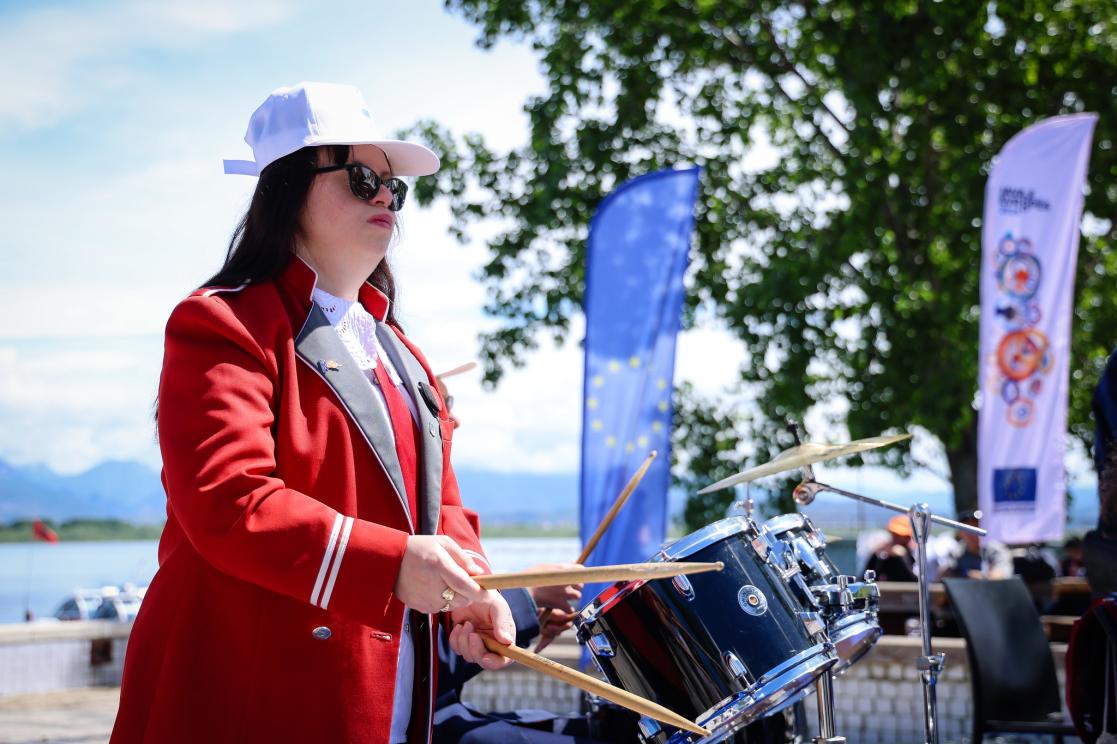The Door: How music revives lives for people with special needs

In a summer evening in Lillehammer, Norway, a woman in a red dress was just enjoying the music when a man invited her to dance.
“It was the evening after the concert we held there. It seemed like a fairy-tale: the lights, the music, the smiles, the emotions, and the happiness in their eyes. They were dancing on the floor, and we were watching them. I will never forget that image; it was one of the best moments of my work. I knew everything we had done was worth it right at that exact moment.”
For Kastriot Faci, this is the most precious memory from all the years he has been working with “The Door,” a band of musicians with special needs in Shkodra. The woman dancing was Silva Pjetrushi, a person with Down syndrome and one of the musicians in the band. It was her first dance ever.

EU Delegation to Albania
“All the musicians in the band have special needs. They do not talk very much, but it’s not hard to read in their eyes the joy they feel from music or social activities,” says Faci, the organizational leader of the band, who has a clear memory of almost 20 years ago when people with special needs had no opportunities at all.
“Today we talk about broken barriers, but once the situation was much more serious. The stigma was evident, as was the prejudice. The community's attitude was not as positive or as open to as it is today. Since they faced verbal violence, they were often left isolated, so they also had difficulty speaking or communicating. After finishing school, they were just ‘locked’ in their apartments, as there was no place for them to go. Today, almost 20 musicians of different ages have a new life. They are part of a community, part of a music group. They travel, play music in concerts, and meet people,” says Faci.
How it all started
The band was founded almost 20 years ago, following a Norwegian example and with their contribution. In 2005, Faci asked Bepin Vjerdha, an artist and music teacher, to help him in this initiative. They went to the special school “3 December” in Shkodra, and after considering how the young people followed the rhythm, their energy, their lips, and teeth, they chose some of those who showed physical strength and talent to become part of the brass band.

EU Delegation to Albania
“Art and music are difficult for every artist. We needed a lot of rehearsals, a lot of work, long hours, and a lot of patience. To be part of a brass band, three elements are important: body strength, lips, and rhythm. I taught them to follow the rhythm and how to hold the instrument, but it wasn’t always easy. There was a moment I wanted to quit, but Faci convinced me not to. Now I am proud of what we did. We learned together to play music and move on,” explains the music director of the band, Bepin Vjerdha.
The brass band has been part of several concerts and festivals all over Albania and abroad, from Kosovo to Montenegro to Norway. They usually have rehearsals twice a week, but before concerts, they work more. Their repertoire includes classical and folk music, from Beethoven to local art, but all the musical scores are revised or orchestrated by Vjerdha. A new music piece needs almost a month of rehearsals, but in the end, “The Door” band can play all the notes. As this year’s Europe Week celebrated inclusiveness, diversity, and human rights, the musicians with special needs opened the program in Shkodra. Their music comes with their breath. In every breath they take on stage, they show how much they can give to society.

EU Delegation to Albania
“Once isolated and all alone, now they have accepted their talent and developed it. They have different special needs, but all of them, despite their age, think as children do,” says Faci, recalling all the small fairy tales we can witness with some effort to give everyone the same chances, because “The Door” was at first just a dream or a door to the future.





